12 Rwandan Foods to Try: Traditional Rwanda Dishes, Desserts, Drinks
Interested to learn about the best Rwanda foods? In this Rwandan Food Guide, you’ll learn about dishes, drinks and desserts from around the country. If you’re willing to explore new cultures, you’ll find that Rwanda is rich with possibilities – especially when it comes to their cuisine. Lets take a culinary trip to Rwanda with these 12 traditional foods.
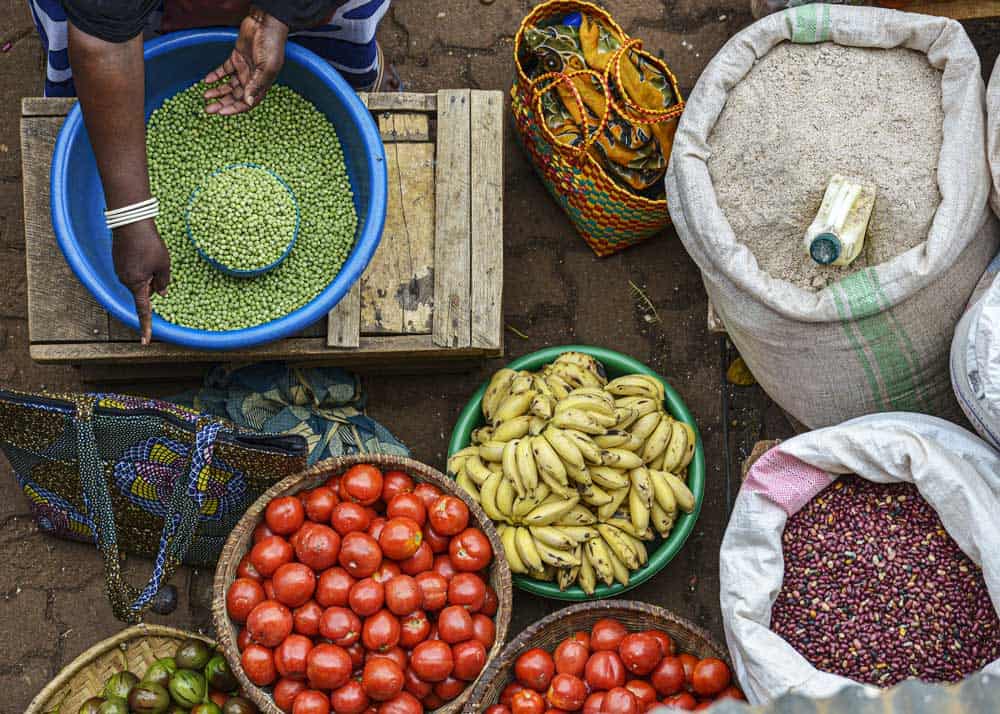
Agriculture is one of their biggest exports, so they grow and eat their own bananas, beans, legumes, sweet potatoes, and cassava. They also love to experiment with bold flavor combinations that you’d never expect.
You can be forgiven for not knowing a lot about Rwanda, a small, landlocked country in the middle of Africa.
It often flies under the radar compared to its neighbors. Are you ready to make your mouth water? Let’s get started!
Rwandan Dishes and Cuisine
1. Isombe
Isombe looks like a spinach dish, but it’s actually made with boiled and pounded cassava leaves. A variety of vegetables can be added to the mix, including onions, leeks, eggplants, tomatoes, and bell peppers.
The final component is a spoonful of peanut butter and a drizzle of oil to hold it all together.
It might sound like an unusual combination of ingredients, but isombe is one of the most popular dishes in Rwanda, especially when served with a side of rice or porridge!
2. Matoke
Bananas are a staple of the Rwanda diet, and over the centuries, they’ve been cooked in endlessly creative ways. You can boil, bake, mash, fry or roast them; you can even ferment them to create beer and wine.
One popular type of banana is the matoke. It’s green and unripe, and it has the consistency of a potato when cooked, so it’s a frequent addition to soups, stews, wraps, and more.
Expect to see a lot of matoke if you ever take a great Rwanda food tour.
3. Igisafuria
Igisafuria means “pot” in the native language of Rwanda, and it refers to the fact that all of the ingredients of this dish are cooked in a single pot.
Its base is usually chicken, and it’s topped with onions, tomatoes, and celery chunks that marinate in the broth and spread their flavors around.
Spicy peppers can be added for an extra kick, or bananas can be thrown into the pot for a slightly sweeter taste.
Many variations of igisafuria can be found in different regions of Rwanda, so its recipes are just as varied as its ingredients.
4. Brochettes
Rwandans don’t eat a lot of meat, but when they do, they go all out. One of their most sizzling dishes is the brochette.
You might recognize “brochette” as the French word for “skewer,” and indeed, they’re basically meat sticks made with cow, pig, chicken, or goat.
They’re dunked into spices and grilled over open flames until they’re almost black.
Marinades can include tomatoes, onions, peppers, and vegetable oils. A typical side dish is a roasted banana or a small mound of crispy potatoes.
5. Ugali
Ugali is a white, porridge-like food that’s created from maize and either water or milk. It doesn’t have a lot of flavor on its own, but it can be cooked in mind-blowing ways when paired with meats, veggies, stews and sauces.
Think of it like white rice. It might not be exciting by itself, but it’s a vital component of everything from rice balls to rice-based casseroles.
Ugali is very similar: You’ll find it in many, many Rwanda foods, and in restaurants, the chefs won’t even charge for it. It’s just a regular feature of most meals.
Rwandan Food Tour Video
Check out this tour of Rwandan food.
Rwandan Drinks
1. Urwagwa
Also known as “banana beer,” urwagwa is a traditional alcoholic beverage that you can find at every Rwandan wedding and cultural ceremony.
It’s made by ripening bananas underground before peeling, kneading, mashing, and pulverizing them to remove all of their juices.
Wild grains are added to the liquid to ferment it; sometimes, for added flavor, they’ll be roasted over a fire beforehand. After 24 hours or so, the banana beer is rich golden nectar that’s ready to drink.
2. Ikivuguto
Ikivuguto is fermented milk that can be served with varying amounts of thickness and sourness.
At its most dense, it’s more like a yogurt smoothie than a proper beverage, but that’s on the extreme end of things. In most cases, it’s just a thick milk product with a tang.
If you want to enjoy ikivuguto on your trip, hit up Rwanda’s capital city of Kigali.
They have “milk bars” where you can order dairy-based beverages the way that other countries order coffee, tea, and juice.
Milk bars also serve snacks, so you can grab nuts, cakes, pastries, and even egg rolls to go along with your drink.
3. Icyayi
If you need your caffeine in the morning, you might like icyayi.
It’s a traditional black tea that’s always served piping hot, and it’s a frequent companion to snacks and midday meals in Rwanda.
You can sweeten it with milk and sugar if you’d like, but many people down it without any additives. In addition to being a mealtime drink, icayi is sold everywhere from cafes to street corners for 200 Rwandan francs (20 cents) per cup, so it’s common to just grab it and go.
Is it icyayi or icayi? It depends on the language. Icayi is Rundi (Kirundi) and icyayi is Kinyarwanda.
These are both dialects of Rwanda-Rundi, the official language in Rwanda and Burundi.
Desserts in Rwanda
1. Mandazi
Mandazi are fried pastries that are sometimes referred to as “African doughnuts.” However, they’re less sweet than your typical doughnut, so it might be better to think of them as funnel cakes.
You can turn them into a snack with dessert toppings, including cinnamon, honey, jelly, peanut butter and powdered sugar, but you can also enjoy them as a plain, croissant-style pastry with breakfast foods or coffee.
2. Groundnuts
Nuts are a popular snack on the streets of Rwanda, and like many other dishes, their creation and presentation can get quite elaborate. In addition to the usual honey- and chili-roasted varieties, you can also find them bagged with everything from fruit slices to tender chunks of beef and pork.
There’s even something known as “G-nut sauce” that functions very similarly to peanut sauce, and you can find it used in sweet and savory dishes alike.
3. Mizuzu
Are you tired of bananas? Try some plantains instead. Mizuzu are thinly-sliced plantains that have been fried to a deep golden brown and either glazed or drizzled with honey.
Some restaurants will serve them with a big scoop of vanilla ice cream in the middle. They’ll satisfy your cravings for a sweet, crunchy snack, but they’ll do it in a semi-healthy, fruit-based way.
4. French Fries
Yes, you read that right! You can find good old-fashioned French fries in Rwanda. However, don’t be surprised if they’re served with unusual toppings like mayonnaise.
Many African cultures enjoy the “mayo and fries” pairing the same way that Americans and Europeans enjoy ketchup and fries.
It’s a common combination in Rwanda, Uganda, Tanzania, Burundi and the Congo, especially when the fries are made with sweet potato rather than regular potato.
These are just a few examples of Rwanda food that have been missing from your kitchen. Now that you know all about the amazing dishes and desserts that you could be making, it’s time to upgrade your recipe collection!
Planning a trip? Check out our guide: 16 Safest Countries in Africa

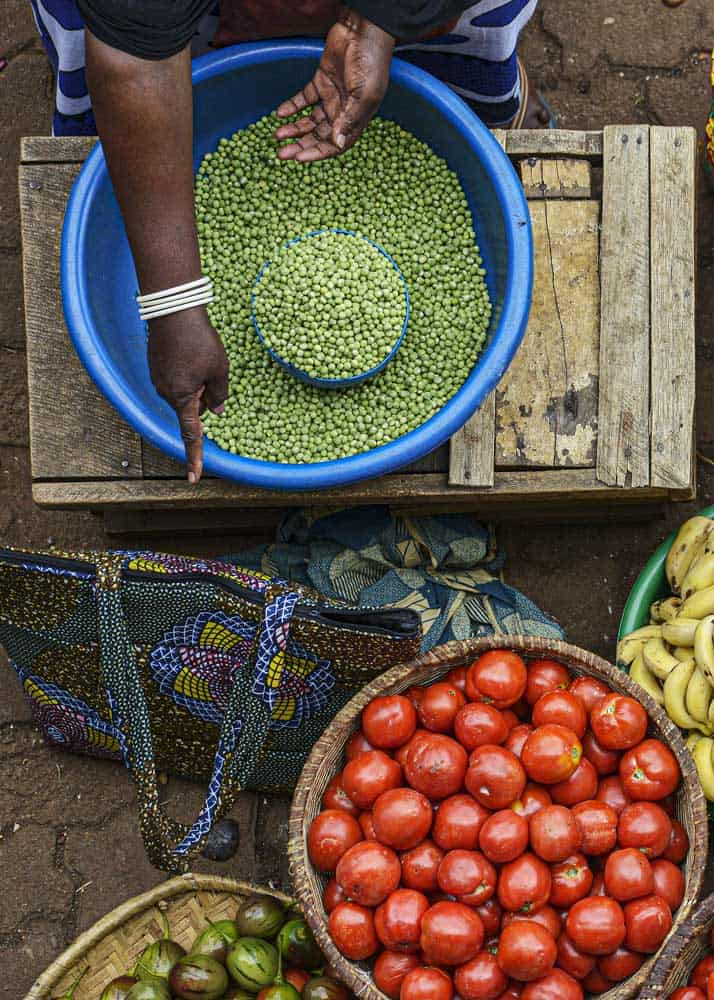
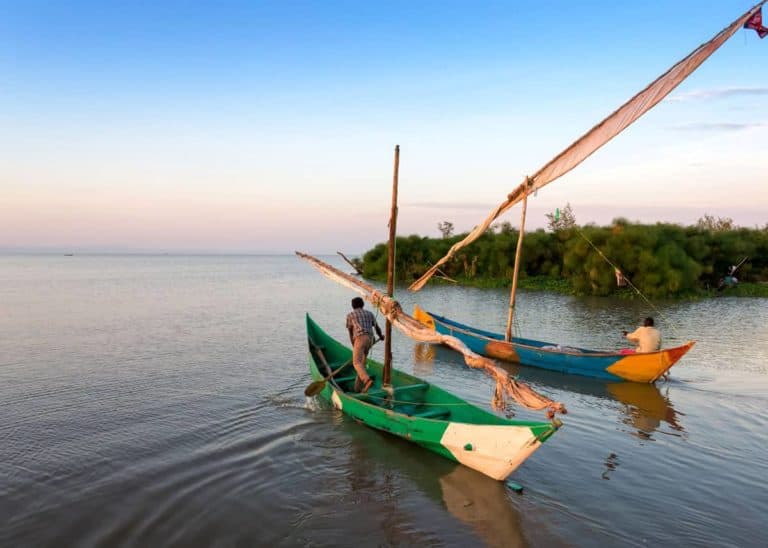

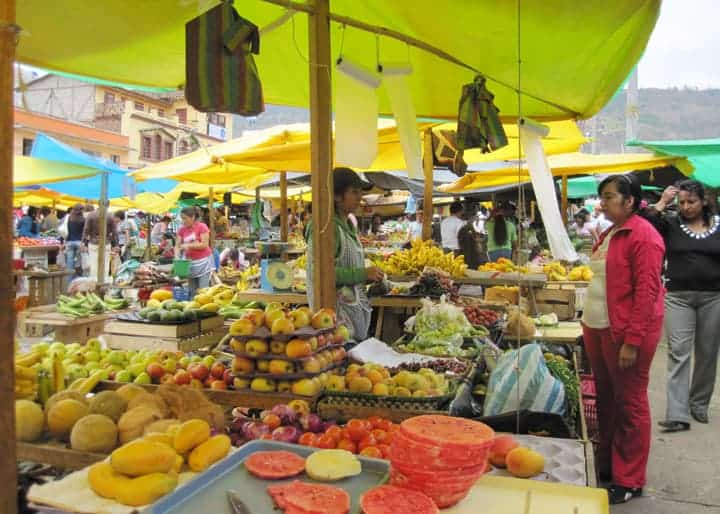
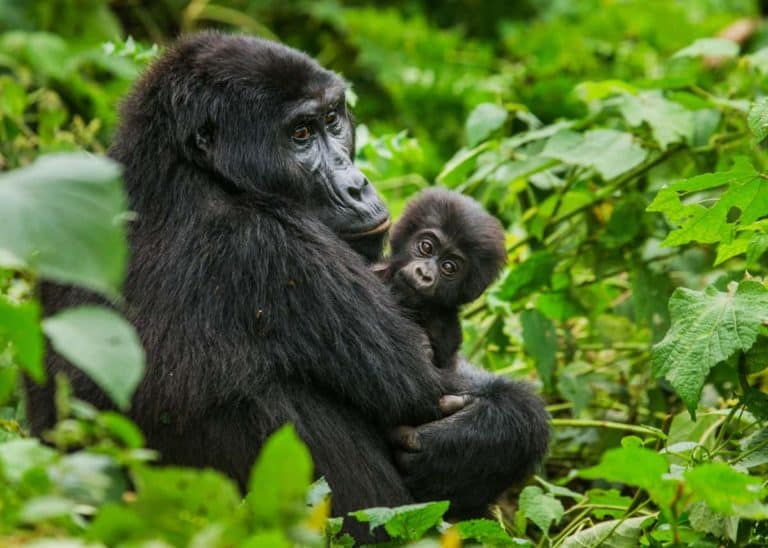
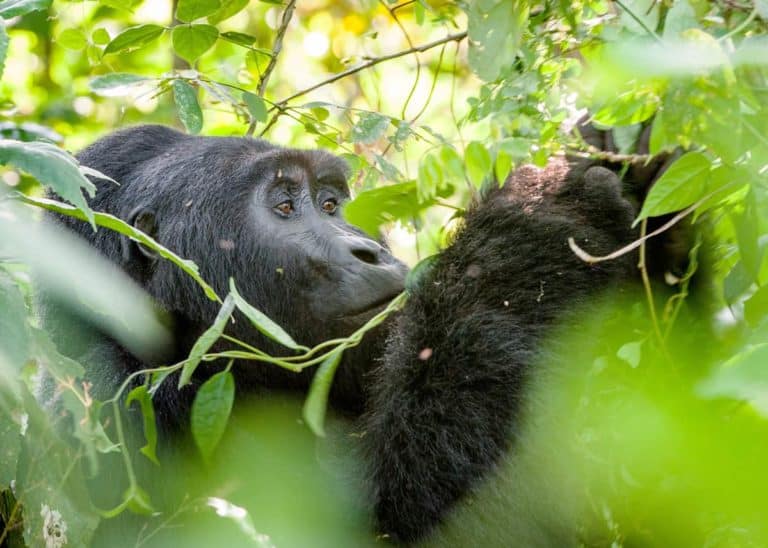
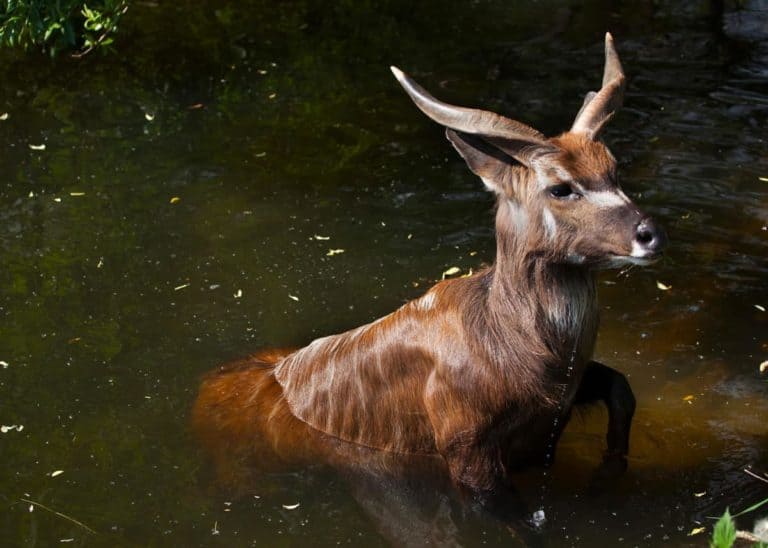
These are all right, but
Not ikiviguto: IKIVUGUTO
Icayi: ICYAYI
Thanks for catching my typos, Emmanuel.
I corrected ikivuguto. And from what I can tell, icayi is Rundi (Kirundi) and icyayi is Kinyarwanda.
Thanks so much!
When you’re talking about Rwandan traditional then mentioning fries and mayo do you know the meaning of traditional?Even sombe is not for Rwanda.
You make a good point. Some of the foods on the list are more modern.
Here’s a nice article by The New Times about sombe. They note that sombe “is a delicacy enjoyed by almost every family in Rwanda and neighboring countries of Burundi and Democratic Republic of Congo”. From what I can tell, it originated in DR Congo, but is now considered a classic Rwandan dish.
fries and mayo is typical in europe – in particular in belgium where it is standard.
Nice. It was also standard in Ecuador. After living there, mayo became standard fare for a plate of fries.
@Bryan Haines,
I don’t know why these people are correcting you but i was born in Rwanda and everything you wrote is correct. thanks for sharing these i was doing a project about Rwanda and this helped me a lot.
Thanks Furaha!